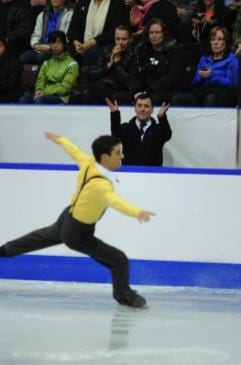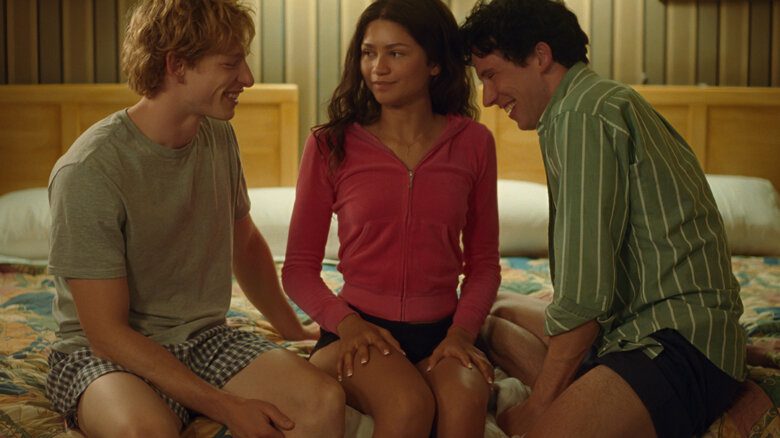
Brian Orser says he's learned to keep a balance between work and his personal life.
For figure skater-turned-coach Brian Orser, this weekend’s Canadian Figure Skating Championship is a biggie.
To an outsider, it’s unclear why. It’s not an Olympic year and the host venue, Moncton Coliseum, has a capacity of 6,500 – not quite the makings of a show for the history books.
But figure-skating fans are anticipating the performance of Cynthia Phaneuf, who recently signed with Orser. The reigning ladies’ national champion arrived at the Toronto Cricket, Skating and Curling Club, where Orser coaches, in November, leaving her long-time Quebec training base and coaches after a dismal international season.
Despite decades as a competitor and now coach, this is a first for Orser: Phaneuf is his first elite Canadian athlete and this is the first time he will be part of the Canadian national seniors event since he himself competed in 1988.
“I finally have a Canadian and it feels great,” says Orser, whose skating students have until now hailed from around the globe, including Korea, Spain and the United States. “I feel pressure for the short term because people are expecting all these changes . . . but this is a long-term project and won’t happen in a couple of months.”
Orser is no stranger to the pressure of expectation: he unsuccessfully pursued the 1988 Olympic gold in Calgary in the famous Battle of the Brians.
Orser has faced other public challenges throughout his life – including being outed by an ex-boyfriend in court and fired by his star Korean pupil, Yu-Na Kim, just months after her 2010 Olympic victory – but he has proven himself a champion, even in defeat.
Lessons learned now serve both Orser and his pupils.
At 26 years old, Orser entered the Calgary Olympic Games as the gold-medal favourite. He was the reigning world champion, with eight national championship wins. He had the added satisfaction of having beat his top rival, American Brian Boitano, at an international event a few months prior in the very same arena the Olympians would meet.
In the end, Boitano took the gold by the narrowest margin.
The pressure-cooker environment of international competition gave Orser a firsthand taste of the stress his pupils encounter today in competition.
“Brian has handled more pressure in this sport than any of us have,” says Mike Slipchuk, Skate Canada’s high-performance director and a former competitor. “He knows how to handle these situations and is a strong asset to Canadian coaches and his skaters.”
At the Vancouver Olympics, Orser’s know-how was put to the test coaching Kim so she could continue her winning momentum, much like his own in 1988. On the sidelines, Orser imitated many of her gold-medal-winning moves. It’s part subconscious, part intentional.
“I’m nervous and animated, and it helps me to move with them,” he explains. “And I feel like I’m sending out good energy to them.”
Orser says their public split – which led to a series of “he-said, she said” stories in Canadian and Korean newspapers – no longer bothers him.
“We don’t talk, and I guess that’s inevitable given the way that blew up,” he says. “But who knows, it might turn around.”
Off the ice, Orser is happily ensconced in a relationship with Rajesh Tiwari, his partner of four years.
“I’m comfortable being out,” says Orser, who was outed in 1998 when ex-boyfriend Craig Leask slapped him with a palimony suit and the court refused to seal the documents.
“Although this whole coaching thing has been taking over my life and I travel a lot, my partner’s very understanding. When I’m home, I finish work at 5 o’clock every day, and I try to keep skating away from the household.”
Orser lives near Toronto’s gay village, and he says he and Tiwari socialize, dine and shop along Church St. He says his sexual orientation doesn’t affect his work as a coach.
“All my athletes and their parents know of my lifestyle and my partner. I don’t hide anything, and that’s great.”
In her 2011 book Artistic Impressions: Figure Skating, Masculinity and the Limits of Sport, Mary Louise Adams examines why figure skating is a complicated sport for gay people. She asserts that male skaters, gay and straight, are cautious of the fine line between artistry and femininity because there’s a comfort in the mainstream when appealing to judges, skating federations and sponsors.
A gay coach might, therefore, seem a massive risk for a skater keen to succeed. Orser disagrees.
“The most important thing is that when you’re on the ice, you are yourself,” he says. “I try to make sure every skater expresses their own selves and feels comfortable enough to do that. We’ll get some real honesty on the ice that way. If a skater is gay, they happen to be gay.”
 Why you can trust Xtra
Why you can trust Xtra


